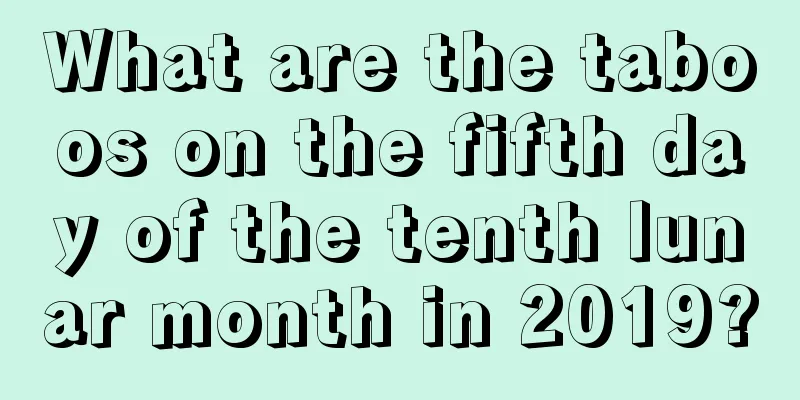What can we do on the Dragon Raising Day in February 2022? What are the customs and activities?

The Dragon Raising its Head Festival is also known as the Dragon Head Festival, the Green Dragon Festival, the Spring Dragon Festival, etc. What can we do on the day of Dragon Raising its Head in 2022? In late winter and early spring, the air is chilly, but the earth is full of vitality. For an analysis of your fortune in February, welcome to Shuimoxiansheng.com’s special topic for February of the lunar calendar in 2022. See you as scheduled!What can we do on the second day of the second lunar month in 2022?Lunar calendar: February 2, 2022; Gregorian calendar: March 4, 2022, Friday, Dog-Sha South [Today's lunar calendar is suitable] Today is a taboo for everything, suitable for hunting, don't do anything important [Today's lunar calendar is suitable] Today is a taboo for everything, suitable for hunting, don't do anything importantAccording to the lunar calendar of February 2, 2022, the day when the dragon raises its head is a taboo day for everything , especially traveling, sailing, and entering the house. What are the customs and traditions of the Dragon Raising its Head on February 2?1. Shaving the dragon headShaving the dragon's head refers to getting a haircut on the second day of the second lunar month. If it is a child's haircut, it is called shaving a "happy head". Giving children a haircut on February 2 is to take advantage of the auspicious time when the dragon raises its head, to bless the children to grow up healthily and become successful when they grow up; if adults get a haircut, it represents saying goodbye to the old and welcoming the new, hoping to bring good luck and a smooth new year. 2. Release the Dragon Lantern On the second day of the second lunar month, there is a custom of "releasing dragon lanterns" in the Yellow River Delta and some riverside areas. On this day, many families make small boats with reeds or sorghum stalks, insert candles or put small oil bowls made of radishes on them, and then put them in the river or bay in the evening and light them, which means that the dragon is lighting the way and conveying good wishes. 3. Offering sacrifices to the land February 2 is both the Dragon Raising Head Festival and the birthday of the God of Land. The "Birthday of the God of Land" is also called the "Community Day Festival." The community day is divided into Spring Community Day and Autumn Community Day. In ancient times, the Spring Community Day was the fifth day of the Wu period after the Beginning of Spring, and the Autumn Community Day was the fifth day of the Wu period after the Beginning of Autumn (Wu, belongs to the earth element in the five elements). The ancients believed that the earth gave birth to all things, and the land god was one of the most widely worshipped gods. People believe that the God of Land is in charge of the growth of grains and local peace, so people in many places worship the God of Land on the second day of the second month. 4. Eat Dragon Food The food customs of the second day of the second lunar month are usually related to the "dragon". For example, eating spring pancakes is called "eating dragon scales", eating noodles is called "eating dragon whiskers", eating wontons is called "eating dragon eyes", eating dumplings is called "eating dragon ears", eating scallion pancakes is called "tearing dragon skin", and cooking noodles and wontons together is called "dragon taking beads". In some places, there is also the custom of eating "dragon eyes", "dragon whiskers", "dragon tongue", "dragon ears", "dragon skin", "dragon seeds", "dragon eggs", as well as spring pancakes and pig heads. Eating food related to the dragon on this day reflects people's strong desire to pray for the dragon's blessing. 5. Knock the faucet In some areas of Northeast China, there is a custom of "knocking on the dragon's head" on the second day of the second month. On the morning of February 2, people hit the beams of the house with long poles to wake up the dragon and bring peace to the area. Adults and children still recite: "On the second day of the second month, the dragon raises its head, the big granaries are full, and the small granaries are overflowing." In some places, people use stove ash to spread big circles in the yard and put grains in the middle, which is called "beating the granary" or "filling the granary", wishing for a good harvest and full granaries that year. Hitting the beams means using a wooden stick or bamboo pole to scare away poisonous insects such as snakes and scorpions to prevent them from causing harm. In some places, it is popular to knock on the edge of the kang, which has the same purpose as knocking on the beams of the house. 6. Yintianlong In some areas, there is a custom of "attracting dragons to the fields" when the dragon raises its head. Every morning on the second day of the second lunar month, every household would carry lanterns to the well or river to fetch water. When they returned home, they would light lamps, burn incense, and offer sacrifices. There are many activities to attract dragons and subdue insects, the most distinctive of which is spreading ashes. The scattering of ash is very particular. Ash is mostly made of wood ash. People scatter a dragon of wood ash from their doorstep to the river, and then scatter a dragon of rice bran to lead it home, which means to send away the lazy (green) dragon and attract the money (yellow) dragon to bless people with wealth; scatter it from the street gate to the kitchen stove, and around the water tank, which is called "attracting the money dragon"; scatter wood ash at the door to block the door and ward off disasters; scatter wood ash at the foot of the wall in the shape of dragons and snakes to attract blessings and avoid pests. In Fu County, Shaanxi Province, it is popular to spread ashes outside the village walls, which is also a way to drive away insects. Later, the practice of using lime instead of wood ash to exorcise insects emerged. Do you want to know your own Bazi? Want to figure out where your golden marriage is? Click on the [Premium Calculation] below to calculate your horoscope and fortune! |
<<: Can I visit and propose marriage on the 27th day of the second lunar month in 2022?
Recommend
Is the 18th day of October in the lunar calendar of 2019 a good day for worshiping ancestors?
In the sky of October in the lunar calendar, the s...
Can I pray on August 30th of the lunar calendar in 2019? Is it an auspicious day?
Can I pray on August 30th of the lunar calendar in...
What are the proverbs about the Grain Rain solar term?
The Grain Rain solar term is a relatively importan...
Check the auspicious and inauspicious time of the Ghost Festival in 2019. When is the Ghost Festival in 2019?
Introduction: Not only does every day have auspici...
Is the seventh day of the third lunar month in 2020 an auspicious day? Is it a good day to sign the contract?
The quality of signing a contract is also related ...
Detailed explanation of the God of Wealth's position on the 13th day of the fifth lunar month in 2020
Detailed explanation of the position of the God o...
Is the beginning of winter in 2018 suitable for burial? Is it possible to bury the deceased on the beginning of winter in 2018?
Introduction: Burial is a formal matter, so an aus...
Is the lunar calendar day of Little New Year 2021 a good day? What is the difference between the Little New Year in the north and south?
Different days have different good and bad qualiti...
Where did Women's Day come from and what is its significance?
Introduction: I believe everyone is familiar with ...
In which direction is the God of Joy on the tenth day of the first lunar month in the Year of the Rat 2020? What are the legends related to the God of Joy?
The date range of the Spring Festival refers to: ...
When are the Big Dragon Boat Festival and the Small Dragon Boat Festival? What is the difference between the two?
Speaking of zongzi, I believe everyone will think ...
Can I move into a new house on June 14th of the lunar calendar in 2020? How's your day?
June is also known as the hottest month of the ye...
The fate of people born in the year of the horse during the Spring Equinox
The different birth times of the zodiac horse will...
Is it a good day to get married on September 7, 2020? What are the auspicious days for getting married in September 2020?
Introduction: Marriage is one of the important mat...
Is the sixth day of the twelfth lunar month in 2021 a good day? Can I make a bed?
Speaking of setting up the bed, I believe everyone...









